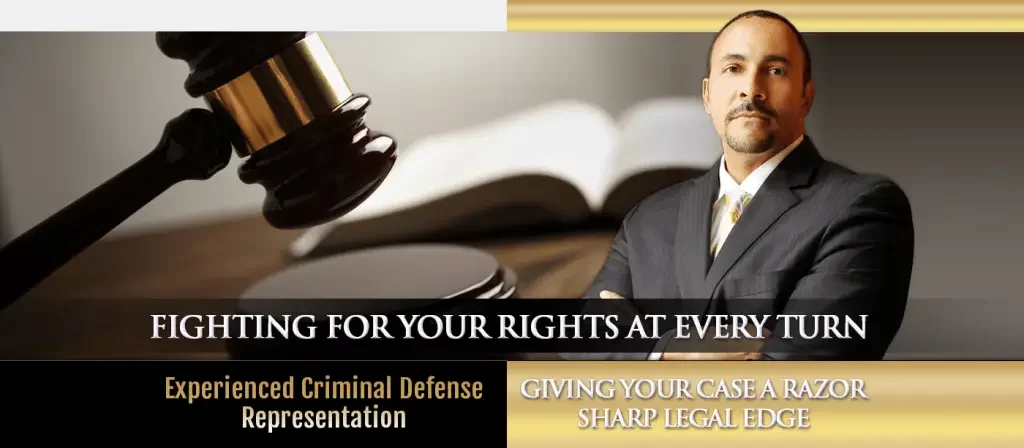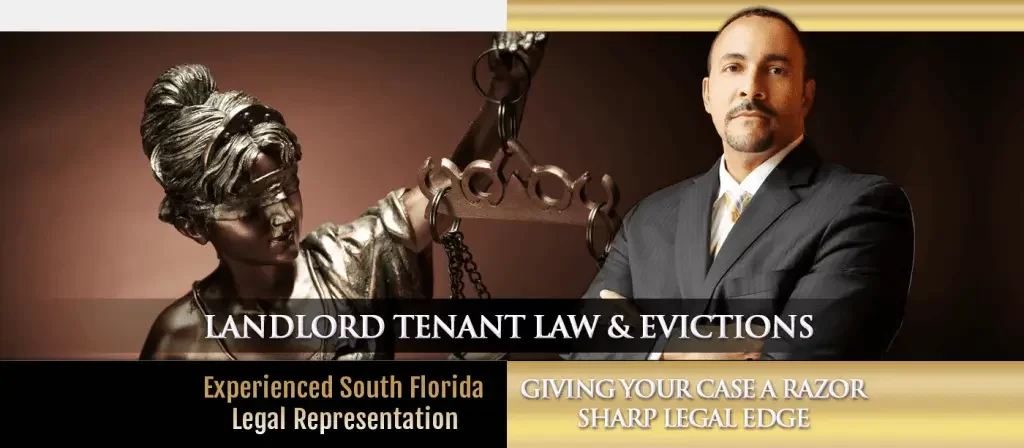Landlord-Tenant Lawyer in South Florida
No one wants to go through an issue with a landlord or a tenant. In fact, most lease agreements try to outline the rights and duties of each party to eliminate the concerns of legal disputes down the line.
Unfortunately, issues can and do emerge that may prompt you to contact a knowledgeable lawyer.
When this happens, learning as much as possible about the issues is strongly recommended so that you feel prepared if you do have to file a suit.
Understanding your rights and responsibilities, either as a landlord or as a tenant, is crucial for anyone who finds themselves in the situation of managing a conflict with another party.
Knowing the legal ramifications as well as how relevant Florida statutes impact this relationship can be important for trying to resolve this issue or moving forward with a lawsuit.
Required Landlord Disclosures in Florida:
An experienced attorney can help a landlord understand the specific information that must be disclosed to the tenants, such as the institution in which the security deposit is located and who is allowed to act in the landlord’s stead. If the landlord fails to make a disclosure, a tenant should consider discussing this with a lawyer.
Security Deposit Limits and Returns In South Florida
One of the most commonly contested issues between a landlord and a tenant is the return of the security deposit. There are no limits under Florida law about the limits for what a landlord can request for the security deposit. That being said, there are clear rules about how and when the landlord must return the security deposit.
Tenant Rights to Withhold Rent in Florida
In certain situations, a tenant is legally allowed to withhold rent, if the landlord does not take care of critical repairs. If you attempt to withhold rent and your landlord tries to pursue eviction against you, it is strongly recommended that you retain a knowledgeable Florida landlord-tenant lawyer.
You need to ensure that the circumstances justify you’re paying less rent and that you comply with any state legal requirement regarding the notice that you have to give your landlord. Florida state laws stipulate the limit on how much rent you may withhold, the type of notice you must give the landlord, the type of repair or habitability issues that qualify for rent withholding and any other issues such as whether or not you will need to pay rent into an Escrow account.
If a landlord fails to maintain or ignores problems such as a broken heater or a leaking roof, a tenant has legal rights, such as the opportunity to withhold rent until those necessary repairs are made. It is strongly recommended that before withholding rent, you contact a knowledgeable Florida landlord tenant attorney to discuss your options. The way in which you approach the withholding of rent can keep the relationship between you and your landlord professional without escalating it to the point of a legal dispute. Many tenants are well within their rights to withhold rent when a landlord is not taking care of critical maintenance issues, but you must understand the right way to approach this issue.
Florida Rent Rules
Another commonly contested issue for landlords and tenants in Florida has to do with eviction issues and overdue rent. State law regulates these issues clearly, including that a tenant has up to three days to pay the late rent or vacate the property before a landlord can initiate the eviction process.
Eviction Rules and Termination in Florida
A landlord can terminate a tenancy in several different situations, for example, if a Florida tenant has caused intentional destruction to the property or violated the lease repeatedly within a 12-month period, this gives the tenant 7 days to vacate before the landlord can file for eviction.
In certain situations, a tenant may have legal reasons to fight the eviction and get the opportunity to stay in the rental unit in Florida. A tenant can be evicted for violating the rental or lease agreement or for not paying rent, but there are some situations in which a tenant could have good reasons to fight against an eviction. If a tenant is evicted for breaking some or all of the lease agreements, such as keeping pets when they are clearly not allowed, at that point the landlord is required to provide a 7-day notice to vacate.
The Court’s Role in Evictions in South Florida
If a tenant opts to fight an eviction and fails to vacate within a certain time limit, then the landlord has to file a complaint. From this point forward, the court then establishes a hearing date. Both parties will attend that hearing.
A tenant will have up to five days maximum to file their answer in court after he or she receives the landlord’s complaint. All eviction defenses should be outlined in your official complaint and a Florida landlord-tenant lawyer can assist you with this. At this hearing, it is at the discretion of the judge to determine whether or not the tenant can be evicted as a result of the information filed by the landlord and the tenant’s response.
Should We Fight the Issue?
It is important to remember that litigating or arguing an eviction could cause you to spend money and time. If you have a strong defense, this can make sense. Scheduling a consultation with a Florida landlord-tenant lawyer can help give you a broad perspective of whether or not it makes sense to fight your eviction. A tenant who only needs a couple more days before moving to a new location might be able to come to terms with the landlord without filing in the legal system, however, for more serious issues it’s recommended that you consult with an attorney.
Common Defenses for Challenging Evictions
There are a few different types of defenses applicable to a tenant fighting an eviction. Knowing what applies to your case may be crucial for protecting your rights.
Landlord Engaged in Self-Help for Eviction
The law clearly outlines what landlords can and cannot do in Florida as it relates to eviction. A landlord cannot require a tenant to move out by shutting down the utilities or switching the door locks. A landlord who participates in any of these behaviors could be responsible for paying up three month’s rent to the tenant.
Landlord’s Eviction Notice or Service Had Errors
Very specific guidelines in Florida exist and must be followed when it comes to delivering an eviction notice to a tenant. If the notice of eviction does not include crucial information like the date that the tenant has to vacate the unit then the notice itself is considered defective. The error must be fixed and the eviction notice must be sent to the tenant again before starting the clock on the appropriate time period.
No Legal Grounds for Lease Violations
The landlord must give a tenant the opportunity to fix the violation before initiating an eviction lawsuit. Some of the most common violations for which the landlord has to allow the tenant the chance to fix include:
- Parking in unauthorized areas
- Having unauthorized guests, pets or vehicles
- Failing to maintain the rental unit in a sanitary/clean fashion
The tenant has to be given up to 7 days to correct this violation. If the violation is corrected, at this stage the landlord is not eligible to proceed with an eviction.
Retaliation Against the Tenant
Florida laws also protect tenants from being retaliated against by the landlord. This is outlined under Florida Statutes 83.64 and the most common types of acts that a landlord cannot engage in eviction procedures as retaliation for include:
- A tenant becoming involved in a tenant’s organization
- Tenant making official complaints to the landlord about failing to maintain the rental unit
- The tenant making a complaint to certain government agencies regarding a landlord’s violation of a housing, health or building code
- Ending the lease because of a call to active military
An eviction lawsuit may be started if the tenant exercised these rights and the landlord retaliated.
Discrimination Evictions
The Florida Fair Housing Act and the Federal Fair Housing Act prohibit a landlord discriminating against the tenant based on national origin, race, gender, religion, family status and disability. If a landlord does evict a tenant by violating the Florida Fair Housing Act or the Federal Fair Housing Act, the tenant can use this discrimination as a defense in a legal case.
Unless a tenant is challenging an eviction that is based on not paying rent, it is important to realize that a Florida tenant still needs to pay rent during the eviction proceedings. The court registry receives this rent rather than the landlord. A landlord can automatically win an eviction case and the tenant will be evicted if you do not continue to pay rent over the course of the eviction proceedings.
If you find yourself in the midst of a dispute with a landlord or a tenant, it is critical to evaluate all of your different options and construct a comprehensive defense or legal materials designed to carry out a lawsuit. The right attorney can make a big difference on the impact of your case. Given that housing issues can often generate anxiety and an overwhelming feeling for tenants as well as the landlords responsible for the property. Educating yourself about your responsibilities as well as your rights under state and federal laws can go a long way towards clarifying what you need to do next. Do not hesitate to get help from a Florida landlord-tenant lawyer.
More On Steve Taylor and Miami Area Evictions
Meet Attorney Steve Taylor serving Miami Beach and surrounding Miami-Dade County
Are you a landlord, tenant, buyer or seller seeking legal representation in Miami-Dade County? If so, you’ve come to the right place.
Steve Taylor provides comprehensive solutions for a wide variety of real estate matters including property disputes and real estate transactions. We assist landlords and tenants with breach of contract issues, including eviction proceedings. For our buyer and seller clients, we offer experienced counsel during all stages of the purchase and sale process from negotiation to clearing the title to closing.
Our in-depth knowledge and familiarity with Florida’s property and real estate laws enables us to pursue the best possible outcome for you. We read the fine print with a meticulous eye in an effort to protect your interests.
Landlord Representation and Eviction
As a landlord, you are obligated to maintain your property and to ensure the premises remains safe for your tenants. In return, you expect your tenants to pay the rent on time and in full, refrain from damaging the property or creating a disturbance for other residents. When a tenant does not adhere to these contractual obligations, you have the right to protect your investment and take legal action to evict them.
Grounds for Eviction
Before filing an eviction lawsuit in court, you must establish a valid reason for why you are taking this action. Common grounds for eviction in Florida include:
- Non-payment of rent
- Habitual late payment of rent
- Lease or conduct violations
- Unauthorized tenants living in unit
- Unauthorized pets
- Egregious damage
- Excessive noise
- Using property for illegal purposes (selling narcotics)
- Health violation
- Refusal to pay legal rent increase
Process to Evict Tenants in Florida
The procedure for evicting tenants in Florida is carefully outlined in Chapter 83 of the Florida Landlord-Tenant Act. As a landlord, it is of the utmost importance that you strictly adhere to the procedures contained within this statute. If you fail to comply, you can be held liable for any financial harm suffered by your tenant, including their attorney’s fees and court costs.
Landlord-Tenant lawyer, Steve Taylor has a firm grasp of the Florida-Landlord Tenant Act and can effectively apply the law to protect your rights.
Step One: Prepare and Serve Eviction Notice
The first step in the Florida eviction process is to provide the tenant with the appropriate written termination notice. Attorney Taylor will draft the notice on your behalf to ensure that the document is prepared using proper legal language, guidelines, and best-practices.
The notice can be delivered in person, via mail, or posted to the door of the unit.
3-Day Notice for Non-Payment of Rent
If the reason for eviction is for non-payment of rent, you would provide the tenant with a 3-day notice demanding that they either pay the rent within 3 days (excluding Saturday, Sunday, and legal holidays) or they have to leave the property.
7-Day Notice for Noncompliance with Lease (With or Without Cure)
If the tenant violated the terms of the lease, you would serve a 7-day notice. If the violation was minor and did not endanger others, you can serve a 7-day notice with possibility to cure, which means if the tenant can become compliant or rectify the issue within 7 days, they can remain on the property. However, if the violation did endanger others, you would serve a 7-day notice without possibility to cure.
15-Day Notice for Termination of Tenancy
If you have a month to month lease and have decided you want to terminate tenancy at the end of the lease term, you are required to give notice 15 days before the date rent is due.
Step Two: The Complaint and Summons
If the tenant fails to comply, pay, or vacate within the specified timeframe given in the notice, you can proceed with actions for an eviction.
Prepare and File Complaint
A summons and complaint must be prepared and then filed with the county clerk in the county where the property is located. The complaint is a legal document that states your intention to recover possession of the property, and if applicable, recover actual money damages for unpaid rent. A copy of the notice and lease agreement will be attached to the complaint.
Step 3: Provide a Service of Summons to Tenant
After filing your eviction complaint, you must serve the tenant with the summons and complaint packet by using a private process server or a sheriff. The tenant will have 5 days to file an answer with the court and post money in the Court Registry.
Step 4: Tenant Responds to Summons
If the tenant responds within 5 days, a hearing will be set before a judge. To prepare for the hearing, you’ll need to gather evidence to prove your case. This might include
- lease agreement
- bounced checks
- photographs of damage
- records of payment of any kind
- phone and email records of the communication between you and your tenant
- a copy of the written notice that you provided your tenant
- dated proof that the tenant received the notice (a signature from the tenant, or receipt from the Post Office).
Step 5: File Motion for Default Judgment (if tenant fails to respond)
If the tenant fails to answer, we can ask the court to enter a default judgment on your behalf.
Step 6: Writ of Possession/Eviction
If a judgment is obtained and they still do not vacate the property, you must obtain a Writ of Possession to be given to the sheriff for service. Once the writ is served or conspicuously posted on the property, the tenant has 24-hours to vacate. If tenant does not, then tenant will be forcibly removed.
Prohibited Actions: What Not to Do as a Landlord During Eviction
As frustrating as it can be dealing with a non-compliant tenant, it’s important to refrain from doing anything irrational. The following actions are considered illegal and can seriously jeopardize your ability to evict: shutting off utilities, changing the locks, removing a tenant’s personal property, or removing the roof, doors, walls, or windows.
A tenant can pursue legal action against you for a wrongful eviction, trespassing or civil theft and sue you for actual and consequential damages. In the end, you could be held liable for 3 months rent or court costs and attorneys fees, whichever is greater.
Tenant Eviction Defense
Did you receive a Notice of Eviction from your landlord? Don’t panic. Instead, take immediate action by contacting Steve Taylor 1-305-433-0497 to find out if you have any legal grounds to fight your eviction and remain in your home. As a tenant, you have rights that we will protect and enforce. If you have been threatened with eviction, we will make sure your landlord is complying with the law.
Common Eviction Defenses
Your Landlord Did Not Terminate Your Tenancy Properly/Improper Eviction Procedures
- You were not sent a written notice of eviction
- You were sent the wrong eviction notice
- The complaint does not state the reasons for eviction
- Your landlord did not properly serve you a summons and complaint
- Your landlord began the court case before the time period on your notice to quit expired
No Legal Justification to Evict
- You do not owe the amount of money your landlord claims you owe
- You paid all the rent money within the required time
- You did not violate the terms of your lease
Poor Living Conditions
If your landlord didn’t maintain your property or make repairs promised in your lease or failed to keep your home in good repair, you may have legal grounds for withholding a portion or all of your rent, even cancelling your lease agreement. Examples of conditions that are not tenable may include: no hot water, operational plumbing, heating, pest infestations, and other building, health, and safety code violations.
Landlord Retaliation
Your landlord cannot file an eviction out of retaliation for you reporting a housing, building, or safety code violation to a government agency; for being involved in a tenant organization; or for complaining to the landlord about repairs that needed to be made to the unit.
It is also illegal for your landlord to…
- interrupt utility services,
- change the locks,
- remove doors, locks, windows, etc., or
- remove your personal property
Landlord Discrimination
A landlord cannot evict you on the basis of your race, religion, national origin, sexual orientation, age, marital status, handicap, or status as a veteran.






